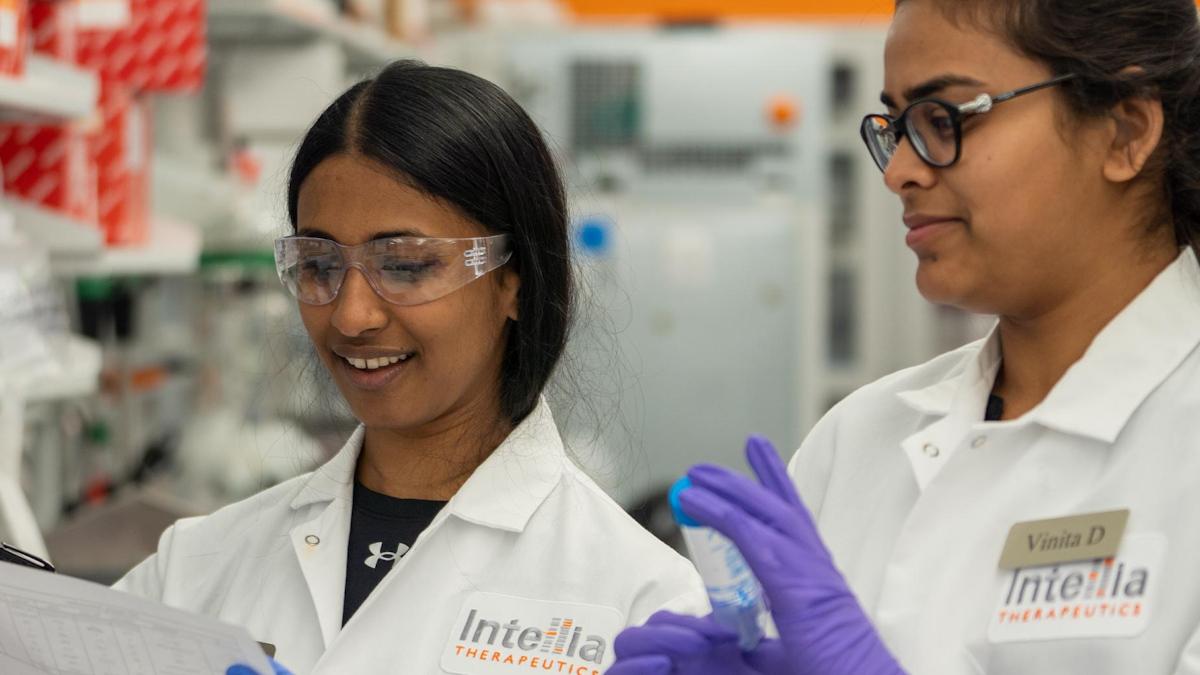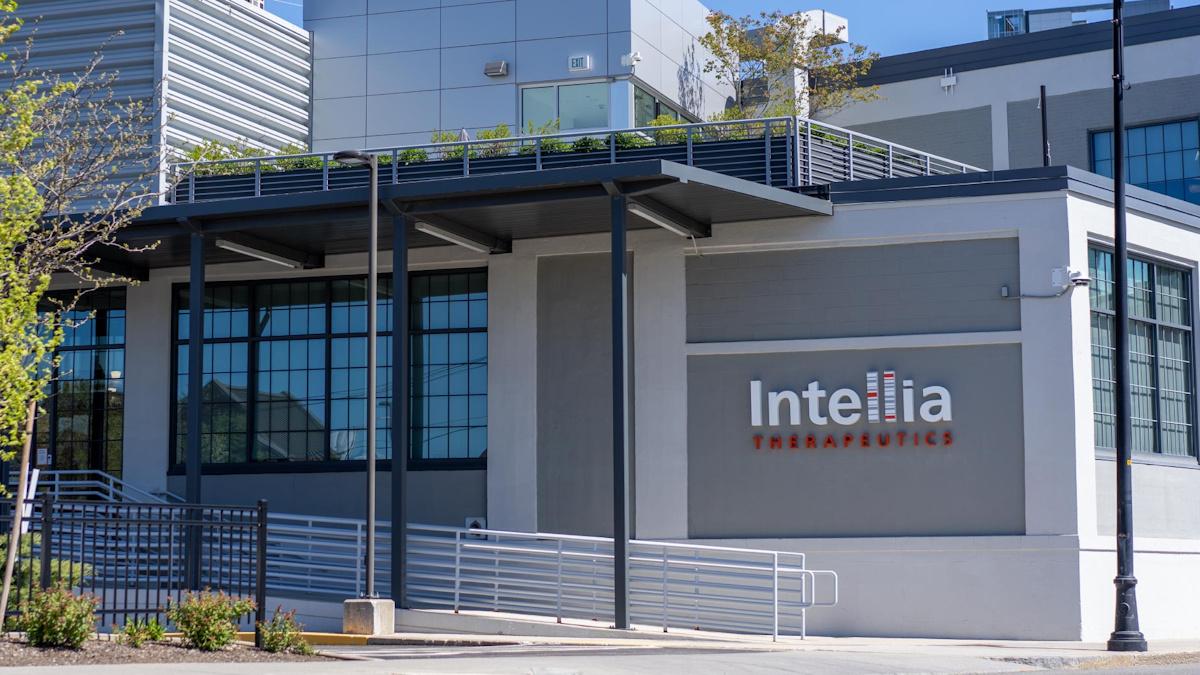CRISPR biotech Intellia cuts staff as it eyes 2027 launch

Intellia researchers at work
Intellia Therapeutics has said it will reduce its headcount by 27% this year and shelve early-stage R&D programmes as it puts its resources behind two priority drug candidates.
The specialist in CRISPR-based gene editing – co-founded by Nobel Prize winner Jennifer Doudna – said it is focusing on NTLA-2002 for hereditary angioedema (HAE) and nexiguran ziclumeran (nex-z) for ATTR amyloidosis as it anticipates its first commercial launch in 2027.
The discontinued programmes are headed by NTLA-3001, an in vivo CRISPR drug developed as a one-shot treatment for lung disease associated with alpha-1 antitrypsin deficiency (AATD). The inherited disorder leads to the accumulation of abnormal AAT protein and its primary symptom is pulmonary emphysema, which can be life-threatening.
Intellia's drug was designed to correct a mutation in the SERPINA1 gene that codes for AAT and has been discontinued along with other "select research-stage programmes," according to the company, which had been in preparations for a phase 1/2 trial. It is expecting to take an $8 million charge in the first quarter in connection with the layoffs.
"Within a challenging market environment, [we] have made a difficult decision to focus our resources predominantly on NTLA-2002 and nex-z, where we have the greatest opportunity to create significant, near-term value," commented Intellia's chief executive, John Leonard.
The company is still cash-rich, ending 2024 with around $862 million in hand, which will be enough to fund three ongoing phase 3 clinical trials – HAELO for NTLA-2002 in HAE and the MAGNITUDE and MAGNITUDE-2 studies of nex-z in polyneuropathy and cardiomyopathy associated with ATTR, respectively.
In October, Intellia reported phase 2 results with NTLA-2002 – which is pitching to become the first approved in vivo CRISPR therapy – saying the results suggested it could offer a "functional cure" for HAE by switching off a gene involved in the potentially life-threatening inflammatory attacks that characterise the disease.
The first dosing in HAELO, which is expected to test a one-off 50mg dose of NTLA-2002 in around 60 HAE patients, will begin later this quarter, with results and a regulatory filing expected next year.
Meanwhile, Intellia is also recruiting patients into the MAGNITUDE study of nex-z and intends to dose its first patients in MAGNITUDE-2 before the end of March.
In other news, Intellia announced that chief scientific officer Laura Sepp-Lorenazo will retire at the end of the year, to be replaced by Birgit Schultes, who has been leading the company's immunology and cell therapy operations since 2017.












